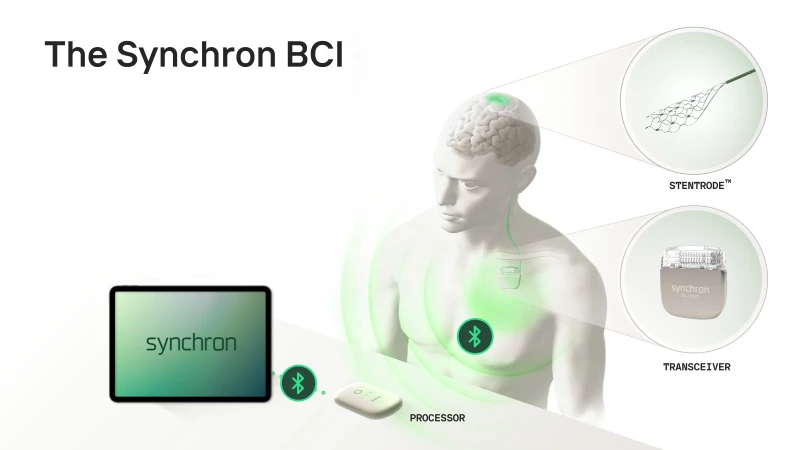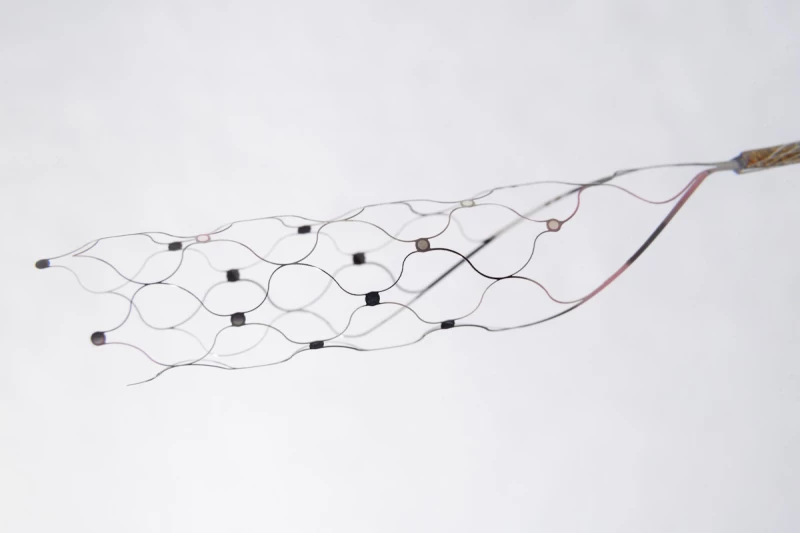Apple’s New Feature May Soon Let You Control Your IPhone With Your Mind

According to a press release from New York-based startup Synchron, Apple is entering the brain-computer interface (BCI) space. The goal is to help individuals with limited mobility control iPhones, iPads, and the Vision Pro headset using thought-based commands.
Revolutionizing Brain-Device Connections with Minimal Invasiveness
Founded in 2016 by neurologist Dr. Tom Oxley, Synchron is a biomedical startup creating a less invasive method to connect devices to the brain, using a proprietary device that detects brain signals through blood vessels, unlike Neuralink, which requires open brain surgery. Bill Gates and Jeff Bezos back the company.
Synchron embeds electrode sensors in a tube-shaped metal mesh called the ‘Stentrode. It picks up motor signals as it’s inserted through a blood vessel leading to the brain. The system sends signals to a small transmitter, which wirelessly relays them to a smartphone-sized processor. The processor interprets the signals in real time and converts them into commands for devices like an iPhone.

Synchron
Breaking New Ground
In July, an ALS patient in the U.S. used Synchron’s tech to operate an Apple Vision Pro headset, playing a card game, sending texts, and streaming video. Building on that, Apple now recognizes neural interfaces as a native input method, alongside touch, voice, and typing.
Founded in 2016 by neurologist Dr. Tom Oxley, Synchron is a biomedical company exploring an endovascular method for linking devices to the human brain. Backed by Bill Gates and Jeff Bezos, the startup uses a proprietary device to detect brain signals without the need for open brain surgery, unlike the approach used by Elon Musk-fronted Neuralink’s.

Synchron
This makes Synchron the first biomedical company to integrate with Apple’s new BCI HID profile. “When we talk to participants in our clinical trials, their top priorities are always communication and creativity,” said CCO Kurt Haggstrom. “For most, that means using Apple products. Apple’s recognition of that need—and their response—shows a strong commitment to accessibility. It’s been a privilege to collaborate with their teams and contribute feedback that helped bring BCI HID to life.”
Later this year, Synchron will conduct clinical trials with participants with severe disabilities, testing BCI HID features on Apple devices. Oxley estimates that 100 million people worldwide have physical conditions, like paralysis, limiting their use of digital technology. By integrating Synchron’s system with widely used Apple products, there’s potential to significantly reduce that number in the years ahead.
Read the original article on: New Atlas
Read more: IPhone 13 gets Satellite Emergency Feature with iOS 18.5











Leave a Reply